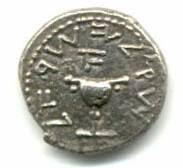JammieWearing Fool reports on the curious case of a Navy signalman who was busy leaking classified information on ship transit plans and movements to Islamic terrorists and was convicted for transmitting classified information to unauthorized persons.
The best part - before joining the Navy in 1997 signalman had changed his name from the prosaic Paul R. Hall to Hassan Abu-Jihaad.
He then joined the Navy after the name change and apparently no eyebrows were raised at the name change at any time in his background check or afterwards.
The court certainly takes the Navy to task over this blindness:
In 1997, defendant Paul Raphael Hall changed his name to “Hassan Abu-Jihaad,” the surname of which translates to “Father of Jihad.”1 This curious choice appears not to have raised any concern in the United States Navy when, in January 1998, Abu-Jihaad enlisted.2
The notes attached to these sentences are quite revealing:
1. Jihad has been defined as “a religious war of Muslims against unbelievers in Islam, inculcated as a duty by the Koran and traditions.” 8 Oxford English Dictionary 238 (2d ed.1989). Although jihad is also understood to denote “the struggle against one’s evil inclinations or efforts toward the moral uplift of society,” 7 Encyclopedia of Religion 4917 (Lindsay Jones ed., 2d ed. 2005), it is in the former sense that the concept has been invoked to support terrorist acts against the United States, see, e.g., United States v. Rahman, 189 F.3d 88, 104-09 (2d Cir. 1999) (detailing Sheikh Omar Abdel Rahman’s support for “violent
jihad” against the United States). In this case, the jury heard testimony that jihad warriors, known as mujahideen, commonly select noms de guerre.
2 There can be no question that the United States was then aware that it was a target of jihad terrorism, as evidenced by the February 1993 bombing of the World Trade Center by in New York City, see United States v. Yousef, 327 F.3d 56, 78-79 (2d Cir. 2003); foiled plots in June 1993 and January 1995 to bomb United States aircraft en route from Asia and
New York City bridges, tunnels, and buildings, see id. at 79; United States v. Rahman, 189 F.3d at 109-11, 155; and the June 1996 bombing of the Khobar Towers, a residential complex on a United States military base in Dhahran, Saudi Arabia, see Estate of Heiser v. Islamic Republic of Iran, 659 F. Supp. 2d 20, 22 (D.D.C. 2009).
In other words, the 2nd Circuit in its opinion just legally asked the Navy "What the heck were you thinking when you signed this guy up?"
The very well written appellate opinion can be read in full at the 2nd Circuits' Website.
The opinion details many of Abu-Jihaads' communications with Islamists and paints a very clear picture that he was certainly not just supportive of jihad but was knowingly engaged in transmitting classified information to the Islamist enemy and potentially working in concert with a Marine (the case doesn't say what happended to the Marine as a result). His 10 year sentence which was affirmed, seems rather light given the lives he may have endangered by his acts.
Hopefully the Navy has since improved its background checks and security procedures for sailor recruitment.

No comments:
Post a Comment